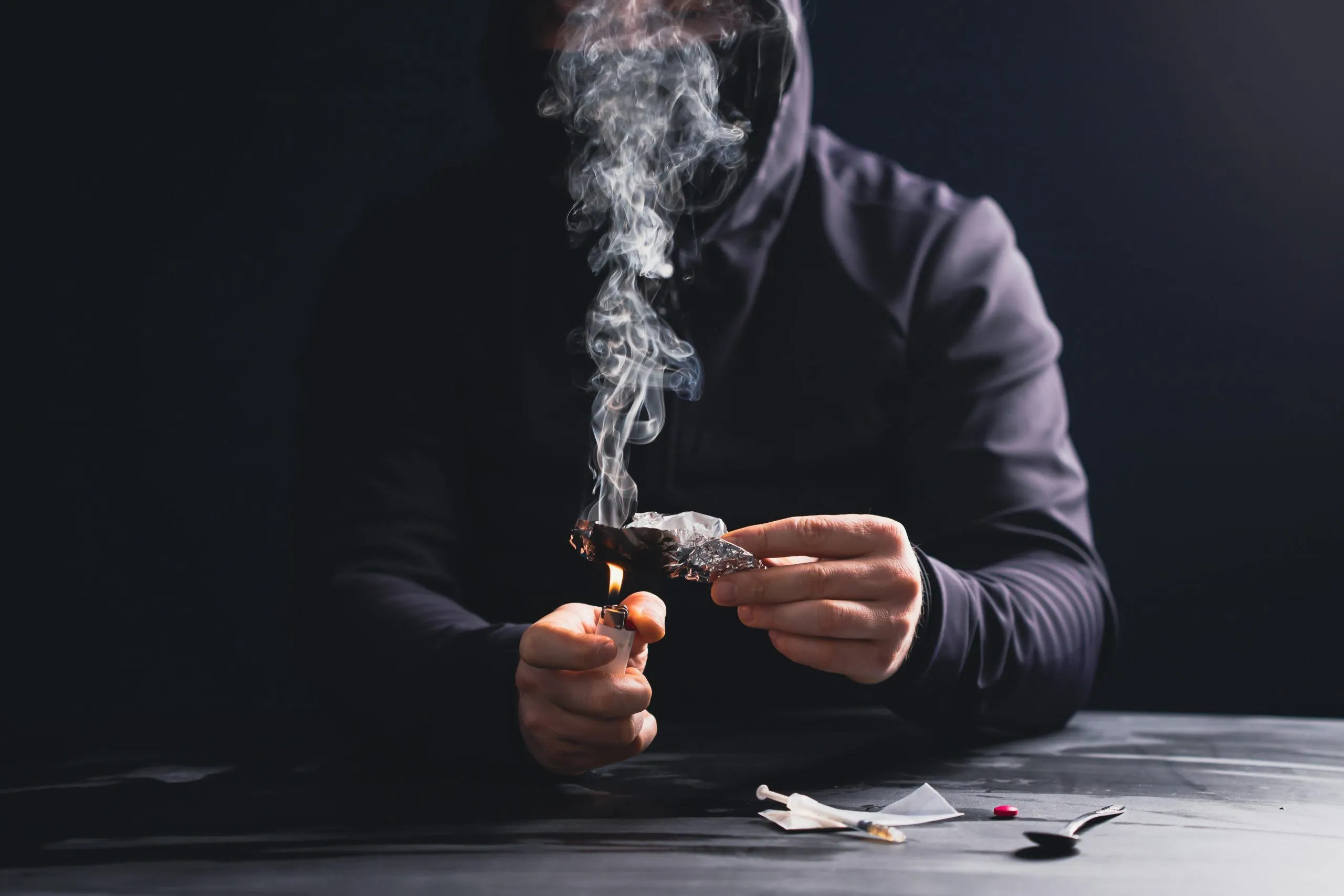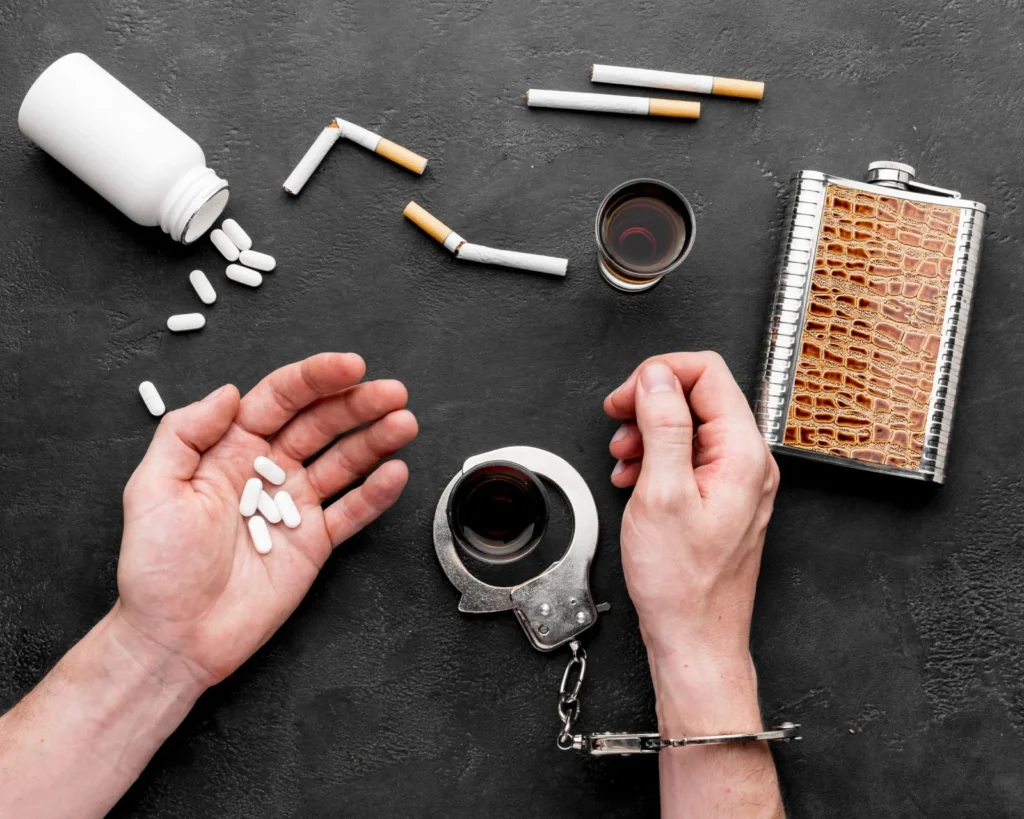Drug De-Addiction

Overview
Drug addiction (or Substance Use Disorder) is a chronic but treatable mental health condition in which a person becomes physically and psychologically dependent on substances such as cannabis, opioids, cocaine, sleeping pills, painkillers, or prescription drugs.
Addiction not only harms physical health but also affects emotions, relationships, work, and family life. The good news is that with professional psychiatric support, medical detox, and behavioral therapy, long-term recovery is absolutely possible.
At Dr. Naazneen Ladak’s psychiatry clinic in Andheri, Mumbai, we offer personalized, confidential drug de-addiction and rehabilitation programs to help patients break free from substance dependence and rebuild a healthy, purposeful life.
Causes
Drug addiction often results from a complex combination of biological, psychological, and social influences.
Common causes include:
- Brain chemistry changes: Drugs trigger dopamine release, creating strong cravings and reward dependency.
- Stress and emotional trauma: Individuals may use drugs to escape pain, anxiety, or depression.
- Peer pressure or curiosity during adolescence or college life.
- Family history of substance use or addiction.
- Easy availability of prescription or recreational drugs.
- Co-existing mental health conditions such as ADHD, bipolar disorder, or personality disorders.
- Low self-esteem, loneliness, or lack of social support.
Identifying the root cause helps design a targeted de-addiction plan tailored to each patient’s unique emotional and psychological needs.
Symptoms
Recognizing early signs of addiction is crucial for effective intervention.
Behavioral & Emotional Symptoms
- Strong craving or compulsion to use the substance
- Loss of control or failed attempts to quit
- Neglecting responsibilities at work, home, or studies
- Social withdrawal and secrecy about substance use
- Irritability, mood swings, or anxiety when not using
- Continued use despite knowing harmful consequences
Physical Symptoms
- Fatigue, weight loss, or loss of appetite
- Dilated pupils or red eyes
- Frequent colds, infections, or tremors
- Disturbed sleep or insomnia
- Memory issues and poor concentration
- Tolerance or withdrawal symptoms (nausea, sweating, body ache when substance is stopped)
If these symptoms are present, it’s time to seek help from a psychiatrist for drug de-addiction in Andheri.
Diagnosis
At Dr. Naazneen Ladak’s clinic, diagnosis begins with a comprehensive assessment to understand the type of substance used, duration, and psychological effects.
The evaluation includes:
- Detailed medical and psychiatric history
- Substance-use pattern analysis (type, frequency, triggers)
- Mental-health screening for depression, anxiety, or psychosis
- Physical examination and lab tests (if needed, to assess organ impact)
- Motivation and readiness assessment for recovery
This holistic diagnosis allows the psychiatrist to create a personalized treatment roadmap, addressing both addiction and underlying emotional triggers.
Treatment
Recovery from drug addiction is a step-by-step process involving detoxification, therapy, medication, and long-term rehabilitation.
1. Medical Detoxification
The first stage focuses on safely removing the substance from the body under medical supervision.
Helps manage withdrawal symptoms
Monitored by psychiatrist to prevent complications
May involve short-term medications to reduce cravings or anxiety
2. Medication-Assisted Therapy
For certain drugs (like opioids or benzodiazepines), medications such as Naltrexone, Buprenorphine, or other anti-craving agents may be prescribed to prevent relapse and stabilize mood.
3. Psychotherapy & Counseling
Cognitive Behavioral Therapy (CBT): Helps identify thought patterns that fuel addiction.
Motivational Enhancement Therapy (MET): Strengthens motivation to stay sober.
Relapse Prevention Counseling: Teaches coping strategies for triggers and cravings.
4. Family & Support Therapy
Addiction affects the entire family. Family therapy improves communication, trust, and emotional support — essential for recovery.
5. Lifestyle & Rehabilitation Support
Structured daily routines and mindfulness training
Encouraging physical exercise, hobbies, and positive social engagement
Follow-up sessions and support groups for long-term sobriety
With compassionate, evidence-based care, patients can overcome dependency, rebuild self-confidence, and lead a drug-free life.
When To Seek Help
You should consult a psychiatrist for drug de-addiction if you or someone you know:
- Feels unable to stop using drugs despite repeated efforts
- Experiences withdrawal or mood changes when sober
- Has health, relationship, or work issues due to substance use
- Feels guilty, anxious, or depressed after using
Early professional help ensures faster and more effective recovery.
Consult Dr. Naazneen Ladak – Psychiatrist in Andheri, Mumbai
Specialist in Drug De-Addiction, Detox, and Rehabilitation Therapy
Break free from addiction — confidential, compassionate, and medically supervised recovery starts here.

